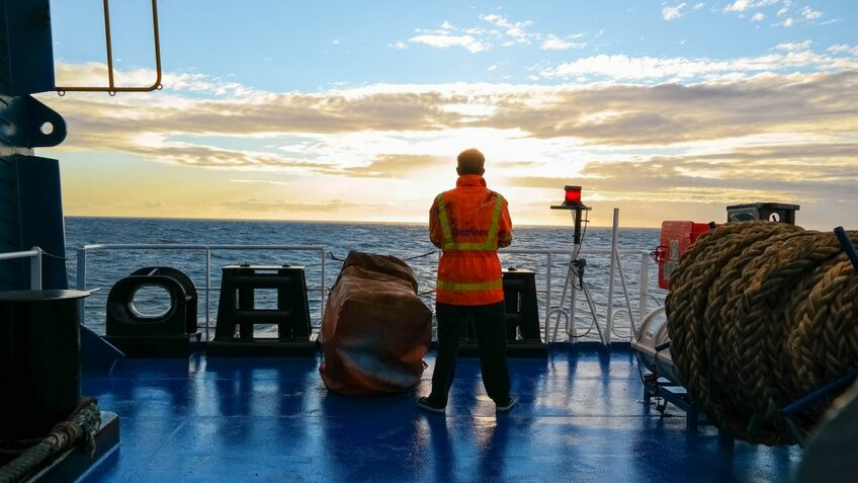
The COVID-19 pandemic has made many of the seafarers feel physical and mental exhaustion, while anxiety and mental health issues appear an alarming increase. In fact, a great number of seafarers are being denied medical care ashore, in breach of international law according to the UN’s International Labour Organization’s committee of experts.
For this reason, the challenges that seafarers are dealing with are an ongoing humanitarian crisis for which industry stakeholders struggle to designate seafarers as key workers and be prioritized for vaccination in an effort to resolve the crew change crisis soonest possible. Indicative of this situation is the fact that ISWAN received over 20,000 calls and messages to its helplines from seafarers and their families seeking help and support. This is twice the usual number of calls and messages relating to suicides or suicidal thoughts. “The pandemic has yet to run its course and seafarers are still being asked to go above and beyond the call of duty”, said ISWAN’s Chief Executive Officer Simon Grainge, adding that from April 2020 to March 2021, 31 abandonment forms involving 333 seafarers submitted to the ILO/IMO Database on reported incidents of abandonment of seafarers.
In the same wavelength, an industry-wide survey on maritime workers’ well-being during COVID-19, led by Lloyd’s Register in collaboration with the UK Chamber of Shipping, the Mission to Seafarers, and Safety at Sea, made some remarkable findings. Namely, survey results indicate that many providing essential services in the ocean economy are feeling undervalued. When asked whether they agreed with the statement ‘I feel valued in my role’, only 8% of seafarers strongly agreed, and just 13% felt they were performing an essential role during the COVID-19 pandemic. What is more, when asked to rate support on mental and physical well-being during the pandemic, on a scale from 1 to 10, the mean result was 6.29. This means that while a lot of companies have provided support during the pandemic, there is still room for improvement.
An interesting finding of the SAFETY4SEA’s Crew Welfare Survey was the fact that there is a difference in support for seagoing versus land-based employees, with key findings including:
75% of seafarers stated the pandemic meant they were not receiving regular visits from shoreside personnel.
62% of seafarers felt their health and safety were not being balanced appropriately with operational demands.
54% of seafarers felt they were not being actively helped to manage stress and fatigue during the pandemic.
Seafarers happiness increases to pre-COVID-19 levels
On the bright side, seafarers’ happiness levels have increased to 6.59/10, from 5.99 in the previous reporting period, returning to the same levels seen pre-COVID in Q3 2019, the latest Seafarers Happiness Index marks. Nevertheless, despite a high satisfaction level among crews, the pandemic had a severe impact on seafarers who felt that both their health and wellbeing have been affected, as the SAFETY4SEA survey found. This is mainly because of the crew change issue.
Shore leave and extended contracts have been a huge challenge since the start of the pandemic. As a matter of fact, 5% of seafarers responding at the Seafarers Happiness Index said that they have been away at sea for over a year and a further 13% of respondents have served at sea for over 9 months, with the remainder reporting less than 9 months.
However, there is some light at the end of the tunnel, according to the latest Crew Change Indicator. “We are encouraged by the Indicator’s December numbers, that shine some hope that the holiday season this year will be better for seafarers. The spread of the new omicron variant could however lead to a reversal of these positive trends. It is important that governments treat seafarers as key workers and continue to allow crew changes, when the proper health protocols are respected,” said Kasper Søgaard, Managing Director, Head of Institutional Strategy and Development, Global Maritime Forum.
Lessons learned from the pandemic
#1 Seafarers’ wellbeing makes both human and economic sense
“Shipping should acknowledge the importance of mental health and ensure that they are considered in all aspects of the industry,” said Graeheme Henderson OBE, chair of the industry consortium Together in Safety, during the London International Shipping Week. Additionally, attention to welfare makes business sense for shipping companies as well, as 75% of incidents are the result of human error. Thus, by improving seafarers’ well-being, companies will also see a decrease in incidents.
#2 Shipping can still do a lot to help its people
The fact is that maritime stepped up when governments failed to protect seafarers and didn’t designate them as key workers. However, many believe that shipping can do more to help its people and their families. Namely, V Ships chief commercial officer James Muir, suggests that the industry should employ support centers, safety culture charters, and wellbeing committees to remove the stigma of mental health.
#3 Real life help needed to support digital mental health
As Mental Health Support Solutions CEO Christian Ayerst, said: “technology becomes an asset when ensuring seafarers’ mental health support because it makes it easier to connect people in need with those who can provide it.”
Elena-Ira Tzalacosta (Έλενα-Ήρα Τζαλακώστα)